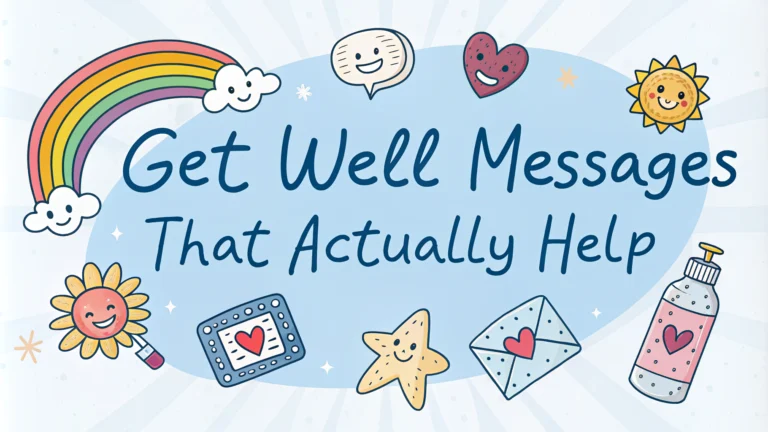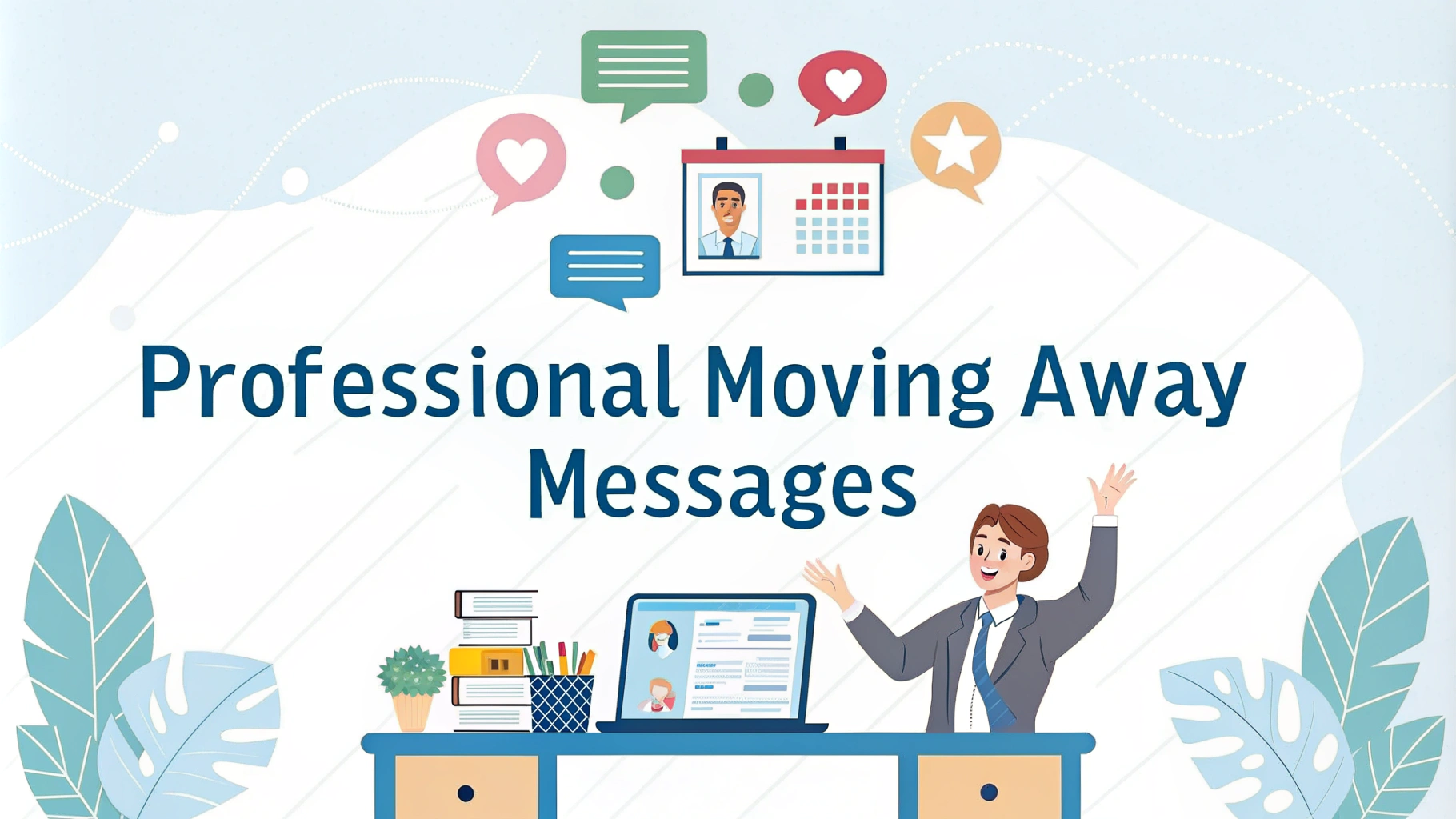Sending thoughtful get well messages can make a meaningful difference in someone’s recovery journey.
Quick Tips for Writing Get Well Messages
- Keep messages brief and positive
- Offer specific help rather than vague statements
- Avoid focusing on the illness or medical details
- Include a touch of humor when appropriate
- Be genuine and personal
Simple Message Templates
These templates work well for most situations:
- “Sending you strength and sunshine. Would you like me to bring dinner next Tuesday?”
- “Missing your smile at work. I’m happy to help with your projects while you rest.”
- “Your resilience amazes me. Let me know when you’d like some company.”
- “Taking care of the yard work this weekend – one less thing for you to worry about.”
What to Avoid
- “Get well soon” – it can feel dismissive
- Medical advice or comparisons to other cases
- Religious messages (unless you know they’re welcome)
- Lengthy stories about similar situations
Practical Ways to Help
- Set up a meal train using MealTrain.com
- Arrange grocery delivery or household assistance
- Offer to drive to appointments or handle errands
- Send small care packages with comfort items
Messages for Specific Situations
| Situation | Message Example |
|---|---|
| Surgery Recovery | “Rest up while I handle the carpool this week.” |
| Chronic Illness | “I’m here for the long haul – just tell me what you need.” |
| Hospital Stay | “Would you like some new books or podcasts to pass the time?” |
Digital Support Options
- Send e-gift cards for food delivery services
- Share entertaining content through Netflix Party
- Schedule regular video chats
- Use apps like CaringBridge to coordinate support
Remember that consistent, small gestures often mean more than one grand gesture.
Additional Resources
- CaringBridge – For coordinating care and updates
- Lotsa Helping Hands – To organize community support
- Local support groups through hospitals and community centers
Making Your Support Meaningful
The key to meaningful support is consistency and authenticity in your actions and words.
Follow-Up Actions
- Check in regularly without expecting responses
- Mark important dates like doctor appointments on your calendar
- Create recurring reminders to send messages or help
- Keep track of their preferences and restrictions
Long-Term Support Strategies
- Rotate responsibilities with other friends and family
- Create a shared calendar for coordinating assistance
- Build a support network through community resources
- Plan activities that accommodate their energy levels
Conclusion
Supporting someone through illness or recovery requires thoughtfulness, consistency, and practical assistance. Focus on sustainable support rather than one-time gestures, and remember that your presence and understanding often matter more than your words. Stay connected, be reliable, and adjust your support as their needs change.
Final Tips
- Document their preferences and restrictions for future reference
- Connect with other supporters to ensure consistent care
- Remember that recovery isn’t always linear – adjust expectations accordingly
- Take care of yourself while caring for others
FAQs
- What types of messages are most appreciated by someone who is ill?
Messages that are sincere, brief, and specific showing you understand their situation. Avoid giving medical advice or comparing their situation to others. Simple messages like “I’m thinking of you” or “I’m here if you need anything” are most effective. - Should I send funny messages to someone who is sick?
Humor can be appropriate if you know the person well and are confident about their current state of mind. Light-hearted messages can lift spirits, but avoid jokes about their condition or situation. - When is the best time to send a get well message?
As soon as you learn about the illness or injury. Follow-up messages are also appreciated during long recovery periods, as many people tend to forget after the initial period. - What should I avoid saying in a get well message?
Avoid phrases like “everything happens for a reason,” religious messages (unless you know they’re religious), comparisons to other people’s illnesses, or detailed questions about their condition. - Is it appropriate to send get well messages for mental health issues?
Yes, showing support for mental health challenges is important. Focus on non-judgmental messages of support and avoid phrases like “cheer up” or “it’s all in your head.” - Should I include specific offers of help in a get well message?
Yes, concrete offers like “Can I bring you dinner on Tuesday?” or “Would you like me to pick up your prescriptions?” are more helpful than vague offers like “Let me know if you need anything.” - What’s the best format for sending get well wishes?
The format depends on the recipient’s situation. Traditional cards work well for longer hospital stays, while texts or emails might be better for minor illnesses. Physical cards are generally more meaningful for serious conditions. - How long should a get well message be?
Keep messages brief and concise, typically 2-4 sentences. Longer messages might be overwhelming for someone who isn’t feeling well. - Is it appropriate to send get well gifts with the message?
Small, practical gifts can be appropriate, such as magazines, books, comfortable items, or their favorite snacks (if allowed). Always consider any dietary or medical restrictions. - Should I send multiple get well messages during a long illness?
Yes, periodic check-ins during a long illness are appreciated. Space them appropriately and vary your messages to show ongoing support without being overwhelming.







